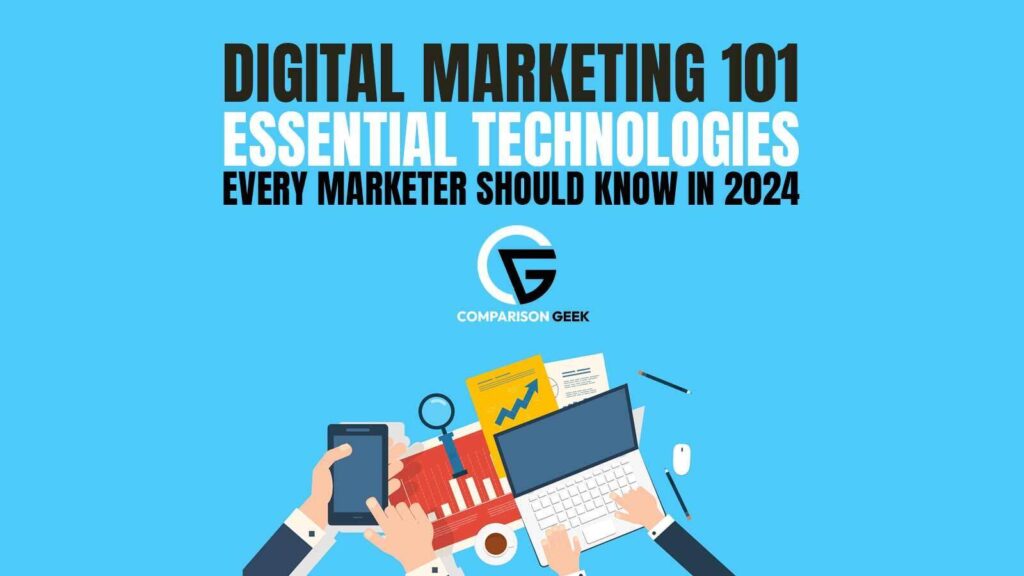The field of digital marketing is evolving and changing, and this evolution calls for creativity combined with strategy and the most advanced technological expertise. Marketers in 2024 should be well-equipped to design campaigns that are innovative and have measurable results. Such technologies can process workflows, refine customer targeting, and develop data-driven insights for better decision-making.
In Today’s tech world, traditional marketing alone is not enough. The ordinary day by day organizing and care given to maintaining customer relationships can be done with CRM platforms. Analytics allows you to see in real time how campaign success is evolving. Management tools on social media ensure uniformity and amplify your presence online with no potential leads being missed. To keep up with constantly changing industry dynamics, marketers need to realize and master those key technologies.
Table of Contents
ToggleCRM Software:
Building and Managing Customer Relationships
CRM tools, such as Salesforce and HubSpot, play a crucial role in structuring and streamlining customer interactions. Marketers can leverage the centralization of customers’ data to track leads, monitor sales pipeline, and personalize communication. In CRMs, workflows can be automated, enabling you to send aligned emails and reminders for follow-ups on your customers. For young marketers, CRMs simplify intricate procedures involved in customer management and make the process more efficient. They also very easily synchronize with other products to put together a whole campaign. Learning the ins and outs of a CRM is a way to spend more time meaningfully engaging with your audience rather than doing mundane work.
Analytics Platforms:
Understanding and Improving Performance
Analytics tools are the backbone of data-driven marketing. For instance, Google Analytics tracks website traffic user demographics and behavioral patterns in specific detail on what works and what doesn’t. Slightly more advanced tools such as Hotjar go above the report by offering heatmaps, click tracking, and user journeys. Such insights will help marketers identify the strengths and weaknesses of their strategies, choosing the right campaigns that have maximum impact. Knowing the preferences and behavior of your target audience helps drive marketing efforts to higher engagement levels and conversions. Any beginner should make a point of learning analysis to successfully know if their marketing decisions are correct.
Social Media Tools:
Streamlining Online Presence
Hootsuite and Buffer are tools that any marketer cannot afford to miss out on managing multiple platforms. These tools allow for the scheduling of posts, engagement monitoring, and analysis of performance, thereby saving time and effort in one place. Maintaining a social media marketing campaign goes into consistency, which such platforms allow for your brand to stay active and relevant. Canva makes design highly accessible, giving it a seamless spin for creating brilliant visual displays. The presence of graphics with timely updates enhances brand visibility. For starters, these tools provide easy interfaces for managing campaigns and maximizing reach and effect.
Organic Growth Drivers:
SEO and Content Marketing Tools
To develop high-ranking content, use SEO tools like SEMrush and Ahrefs. These make it possible to follow and learn about rankable keywords, track rankings, and, of course, find out about your competition. This will keep you on the right subjects and optimize for the best audience possible. The powerful tool, BuzzSumo, identifies trending topics and the most shared content that could be applied in your niche. By aligning your content with these trends, you will outrun the rest of your competitors and win the hearts of your target audience. First and foremost, learning them ensures that you can drive organic traffic and make your website perform well.
Email Marketing Platforms:
Creating Personalized Campaigns
Email marketing remains perhaps the most effective method to reach audiences, especially with Mailchimp and Constant Contact. Such tools make it very easy to design, automate, and analyze campaigns. They bring in customizable templates, so even new users can produce professional-looking messages. Personalization options ensure that marketers send only messages relevant to specific audience segments, thus maximizing engagement and conversion rates. Moreover, they track the open rates and click-through rates and give an idea of the overall campaign success. Email marketing tools are not messaging alone but rather a way of forming relationship-building with your audience in the long run.
Conclusion:
In the year 2024, these are some of the key technologies a marketer needs to master to be successful in the digital space. CRM ensures that relationships are managed right, analytics platforms bring actionable insights into action, social media tools for strengthening online presence, SEO and content marketing tools ensure organic growth; and email marketing platforms enhance personalization and audience engagement. With such technologies, novices can craft outstanding marketing campaigns that generate real results. Take time to understand how best to use them so you are ahead of the curve of your competition, and better utilize your time, which is instrumental in getting you closer to achieving your marketing objectives.


